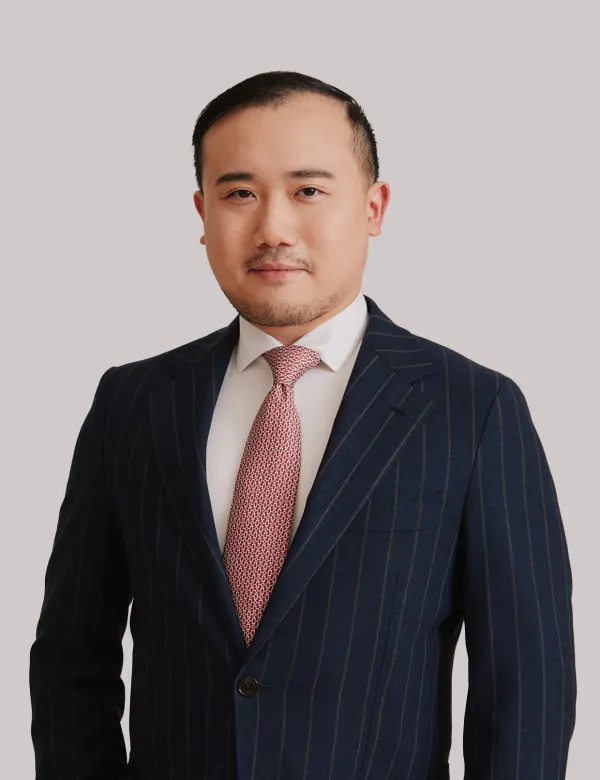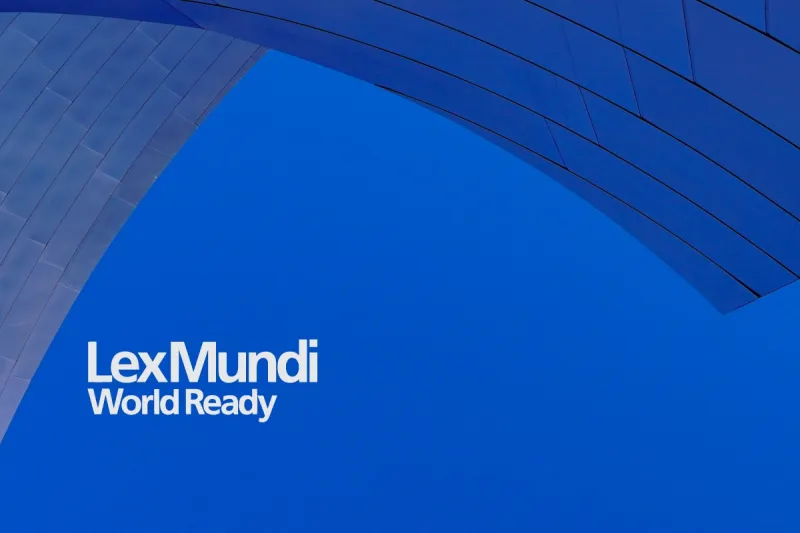Assessing the progress of Macau’s trust law: Has it lived up to expectations?
Law 15/2022 (Macau Trust Law) officially came into force on December 1, 2022, since then, Macao has become the first territory that owns an onshore trust law among other Portuguese-speaking jurisdictions and the fourth member of the Chinese trust law family among the Trust Law of the People's Republic of China, the Trust Law of Taiwan, and the Cap. 29 Trustee Ordinance of Hong Kong. Now that the law has come into effect for one year, but to the best of our knowledge, there is no effective application of the law yet. It is necessary to explore what are the challenges and ways of going forward.
Trusts have long been recognized as an effective form of property management, predominantly used for personal or family estate planning. However, in recent times, trusts have gained increasing significance in commercial aspects, particularly in areas such as securities investment funds, asset securitization, and real estate investment trusts/funds.
To promote trust activity as a wealth management tool and the use of the trust law, we believe that the government must clarify the nature of the relationship between trust and investment funds (business trust) and establish a comprehensive trust and wealth management legal system.
Trust and fund
In traditional general trusts, the settlor unilaterally transfers property to preserve and protect the trust property, with relatives and friends as beneficiaries who receive beneficial interests without compensation. On the other hand, in business trusts, beneficiaries (investors) contribute capital to acquire rights to beneficial interests (fund units). The emergence of business trust law, specifically tailored for business trusts, in the mid-19th century, reflects the need for a specialized legal framework to address the unique characteristics of these trusts.
However, the business trust law often falls short of constituting an autonomous and complete system. In cases where business trust law does not provide specific provisions, general trust law is applied, leading to potential misapplications of rules that are not relevant to business trusts. For instance, certain rules related to the revocation of trusts by the settlor due to beneficiary’s misbehaviour (such as homicide of the settlor) and the equal distribution of rights to beneficial interests among other beneficiaries when certain beneficiaries renounce them may not apply to business trusts.
Countries and regions like China, Taiwan Japan, which have civil law systems, initially lacked a trust system or general trust practice. Their trust laws were developed to meet commercial needs, often drawing inspiration from the Anglo-American general trust law. However, the supplemental nature of general trust law can result in similar issues of misapplication.
For example, the Chinese Securities Investment Fund Law states that when it is silent on certain matters, the Chinese Trust Law, Securities Law, and other relevant laws and administrative regulations shall be applied. This highlights the interplay between trust law and fund law as a relationship between general law and special law. Additionally, as per the “2019 Ninth Conference Minutes,” the action whereby a trust company accepts trusts from settlors to obtain trust returns and handles trust affairs in the capacity of a trustee, following laws, regulations, and the supervisory requirements of financial supervisory and management authorities, is considered a commercial trust.
The overall language of the Macau Trust Law is essentially that of a general trust law. Given that the capacity of the trustee is confined to financial institutions, due to the difficulty of embodying the gratuitous nature typical of traditional civil trusts, the trust relationships established under the current framework more closely resemble traditional trusts utilized for commercial purposes and have a commercial nature.
It is worth pointing out that the ongoing amendment of the Decree-Law n. 83/99/M (Investment Fund Law) in Macau adds to the complexity, as it may introduce a chapter dedicated to private equity funds, potentially intersecting with the existing trust legal framework. The relationship and integration of these laws should be carefully considered by the government to establish a top-level framework for the asset management legal system.
Demand-driven legislative approach and a comprehensive trust legal system
To create an effective trust legal system, it is necessary to go beyond astandalone trust law. A comprehensive approach should integrate complementary laws and regulations addressing specific aspects of trusts, such as taxation and securitization. This holistic approach ensures that all dimensions of trust management and administration are adequately covered.
The development of the trust industry in China, Taiwan, and Japan is closely tied to the economic conditions and societal demands of each region. In China, the need to attract and utilize foreign capital during the reform and opening-up era led to the establishment of China International Trust and Investment Corporation. However, it took the enactment of the China Trust Law in response to internal and external financial reforms for a comprehensive legal framework to be established.
Taiwan's trust system traces its roots back to the early 1920s, during the Japanese occupation period. However, the real development of the trust industry occurred in the 1970s, driven by the authorities' pursuit of export-oriented policies and major construction projects. The enactment of the Trust Law in 1996 and the Trust Industry Law in 2000 facilitated the establishment of a well-structured trust market.
Japan has a longer history with trust laws, beginning with the establishment of the Tokyo Trust Co. in 1906. However, the proliferation of trust companies engaging in exploitative lending practices necessitated the introduction of the Trust Act and the Trust Industry Act in 1922 and 1923 respectively to regulate trust activities and restore public trust in the industry.
These experiences highlight two fundamental observations.
Firstly, the enactment of trust laws in these regions was a response to an existing demand for trust services, rather than an attempt to create a market. The current state of wealth management in Macao reveals a lack of comprehensive tools and a general lack of awareness among professionals, particularly when it comes to trust. The arena of wealth management continues to be dominated primarily by banks, with the establishment of the first investment fund management company not slated until the conclusion of 2022. Additionally, it is worth noting that Macao has yet to establish any public investment funds, resulting in all funds available for purchase within the region being foreign-registered.
The experiences of the said countries indicate that it is more common for trust markets to arise organically under a demand-driven environment and then be regulated through the creation of laws and regulations. This approach allows markets to develop based on natural supply and demand dynamics, and the regulations are put in place to ensure fair competition, protect consumers, and address any negative externalities. Creating a market through legislation is less common and if that was the true intention of the government, the legislative solutions adopted in the Macau Trust Law still leave much to be desired as it is not yet very clear in certain aspects.
Secondly, the establishment of a robust trust legal system involved supplementary regulations, guidelines, and frameworks to clarify legal requirements, ensure legal certainty, and support the growth and stability of the trust industry. Considering these experiences, it becomes evident that a comprehensive trust legal system, complemented by supplementary measures, is essential for the effective functioning and advancement of the trust industry. Such an approach promotes trust-related activities, safeguards stakeholders' interests, and fosters a conducive environment for financial market expansion.
In addition to the trust industry and related regulations, the taxation policies and incentives provided by the government play a crucial role in promoting trust activity as a wealth management tool. Tax frameworks should be designed to encourage the use of trusts by providing favourable treatment for trusts and their beneficiaries. This can include tax exemptions or reduced tax rates for trust income, capital gains, and distributions. By creating a tax environment that incentivizes the use of trusts, the government can encourage individuals and businesses to utilize trusts as effective wealth management tools.
Fostering Awareness
We believe that education and awareness campaigns are also essential to promote trust activity. Many individuals, businesses, and even professionals may not be familiar with trusts or may have misconceptions about their purpose and benefits. The government can collaborate with industry associations, financial institutions, and professional organizations to conduct educational programs, seminars, and workshops to increase awareness about trusts and their potential advantages for wealth management.
Additionally, the government can facilitate the development of trust-related infrastructure and services. This includes establishing trust companies and professional service providers that specialize in trust administration, asset management, and related services. By fostering a robust ecosystem of trust service providers, the government can create a supportive environment for trust activity and attract both domestic and international investors seeking reliable wealth management solutions.
Overall, by clarifying the relationship between trust and the existing investment fund, establishing a comprehensive trust legal system supported namely by favourable tax policies, and conducting education and awareness campaigns, we believe that the government can create an ideal environment that encourages the use of trusts for boosting the sector of the modern finance. The government must continue identifying obstacles that prevent the development of trust to this fullest extent, otherwise, we may lose the momentum and the excellent opportunity to play a relevant role as an asset management centre in the Guangdong-Hong Kong-Macao Greater Bay Area.




